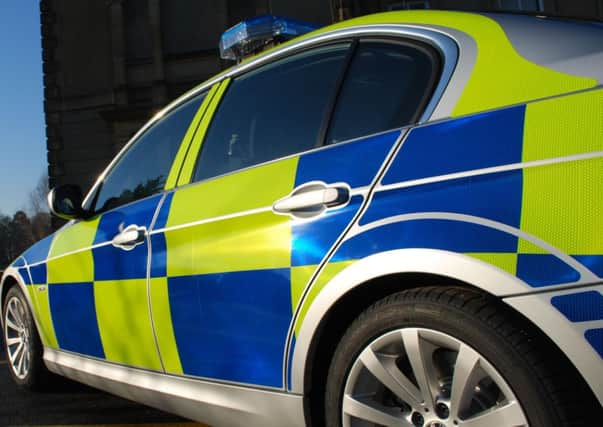Police ‘have to do more to seek out corruption’


Her Majesty’s Inspectorate of Constabulary (HMIC) said forces had “made great strides in tackling misconduct and corruption”.
But its ‘integrity matters’ report said senior officers now “need to continue that work to focus on proactive, prevention work”.
Advertisement
Hide AdAdvertisement
Hide AdThe review of the work of the 43 forces in England and Wales, published today, said over half “are not seeking out intelligence on corruption proactively”.
It added: “It is encouraging that despite budget cuts, forces have in the main maintained resourcing levels in their professional standards departments and anti-corruption units.
“However, while it is clear that the majority of forces have the capability to deal with the misconduct and corruption reported to them, too few are able actively to seek intelligence about misconduct and corruption, and communicate to their workforce and the public that they are doing so.
“Those forces that do not look for such activity are missing opportunities to prevent and detect misconduct and corruption.”
Advertisement
Hide AdAdvertisement
Hide AdIt also warned that many police officers “do not trust” internal systems put in place to report their colleagues, which is likely to result in under-reporting of concerns.
In addition, some managers lack the confidence to deal with misconduct complaints involving black and ethnic minority officers, and so referred them on rather than dealing with them themselves, it was reported.
Despite raising some concerns, the report said arrangements police forces have in place to promote integrity are in “appreciably better shape” than in 2012.
Her Majesty’s Inspector Mike Cunningham said: “When we spoke to police officers and staff it was clear that chief officer teams are demonstrating their commitment to addressing misconduct and corruption.
Advertisement
Hide AdAdvertisement
Hide Ad“Police officers were also quick to tell us that they see corrupt colleagues as a betrayal of the vast majority who are honourable, decent and hard-working.
“We found no evidence to suggest corruption was endemic but we know only too well that the corrosive nature of corruption means that even a single case can be damaging to public confidence.”
A report by the Independent Police Complaints Commission in 2012 said that corruption “has always been an issue for policing”. It added: “In the UK, the development of the modern police has been punctuated by high-profile scandals involving malpractice and misconduct.”
One of the highest profile cases was in West Yorkshire, where burglar Karl Chapman was given alcohol, allowed to take cannabis and heroin, and given money which he spent in a massage parlour.
Advertisement
Hide AdAdvertisement
Hide AdThese were inducements to give evidence against criminal associates, including in the case of the killing of Wakefield pensioner Joe Smales, 85, in 1996.
The report warned that there appears to be confusion among some officers about what gifts they can accept from the public.
It said: “We also found examples of staff who refused to accept anything from members of the public including, for example, cups of tea when on foot patrol, because they thought that it was prohibited.
“That is an unfortunate result. HMIC is concerned that the focus on ensuring officers and staff act with integrity may be misconstrued by some officers and staff who believe that no gift or hospitality can be accepted.”
Advertisement
Hide AdAdvertisement
Hide AdIt warned this may be “leading to some staff not interacting with the public as they normally would and being seen as distant”.
The report went on: “This could adversely affect police relationships with communities and lead to a reduction in information being passed by the public to the police.”
Policing Minister Mike Penning said: “This Government has always been clear that the vast majority of police officers do their job honestly and with integrity. But the good work of the majority threatens to be damaged by corruption and misconduct.
“HMIC’s report shows the importance of this Government’s work to improve police integrity, and compliments the consultation the Government launched on 11 December on reforms to the police complaints and disciplinary systems.
Advertisement
Hide AdAdvertisement
Hide Ad“The Government expects all forces to give due regard to HMIC’s recommendations and remain able to deal effectively with issues of police corruption and misconduct.”
North Yorkshire Police and Crime Commissioner Julia Mulligan, who is Chair of the Association of Police and Crime Commissioners’ Transparency and Integrity Standing Group, said: “Trust and confidence in North Yorkshire Police is higher than the national average, but there is always more than can be done.
“The Chief Constable and I are helping to ensure ethical behaviour is in the DNA of officers and staff, with the new policing Code of Ethics front and centre.
“Proposals to reform the police complaints system, adding independence and flexibility, will strike a chord with members of the public who have struggled against the current complaints process. I am confident that together these changes will drive up trust in policing both at a local and national level.”